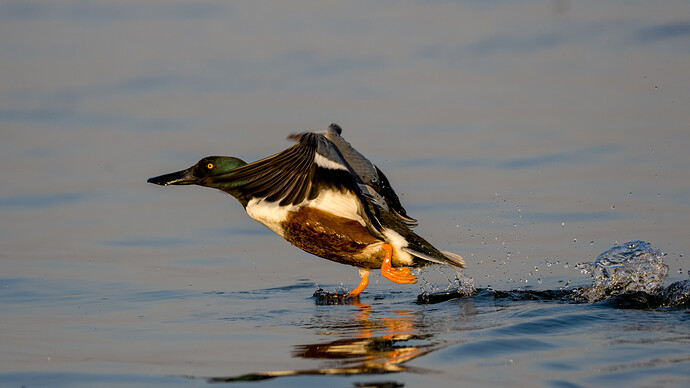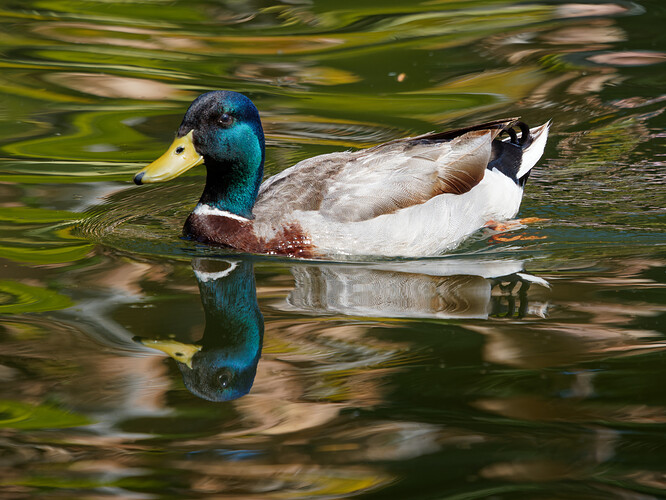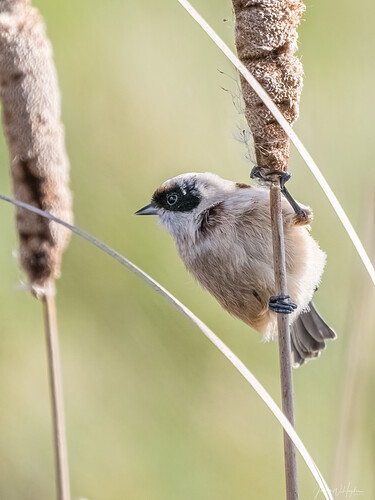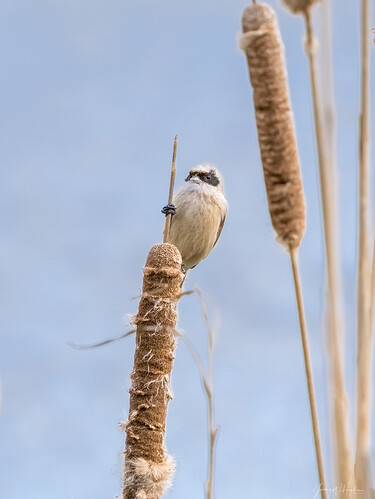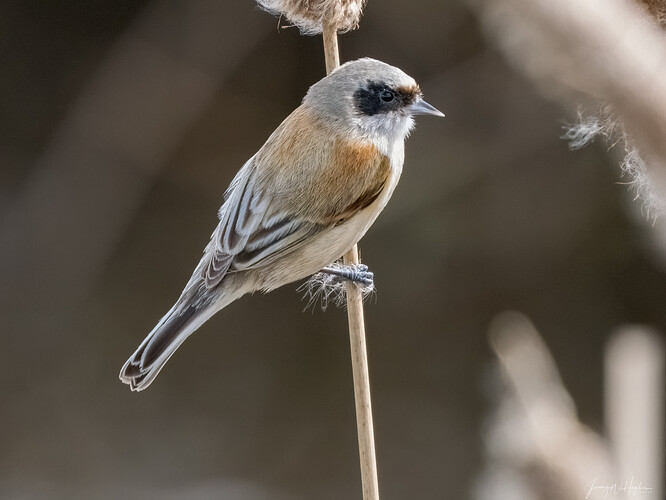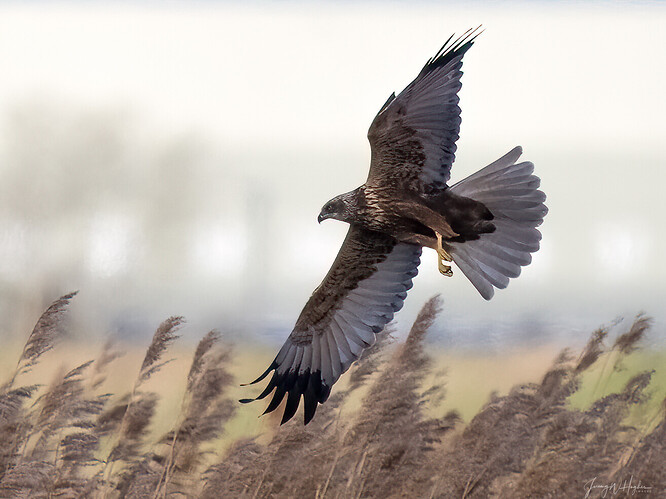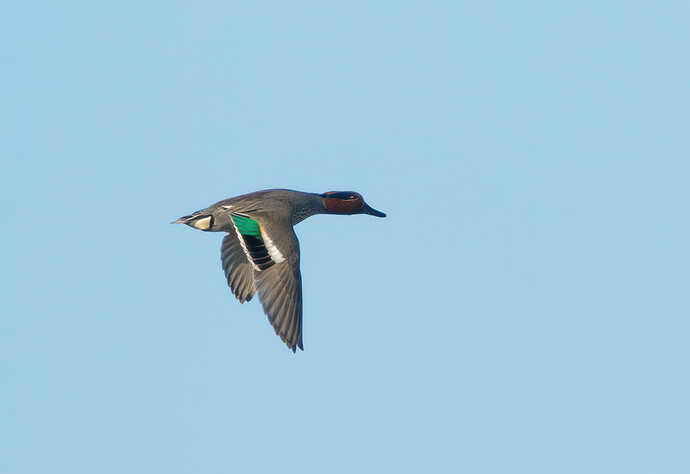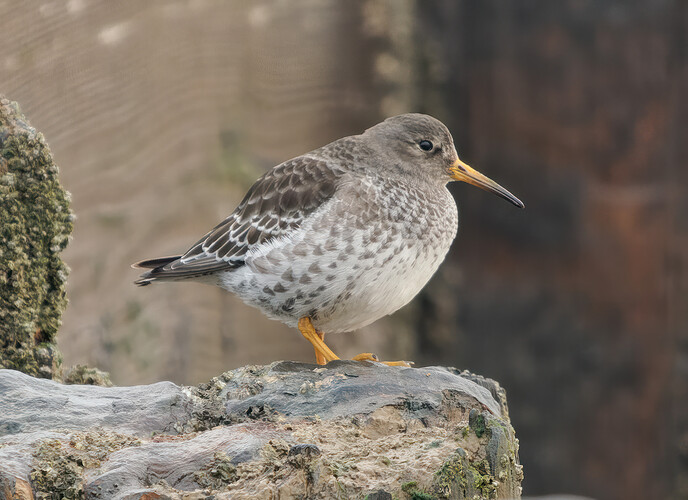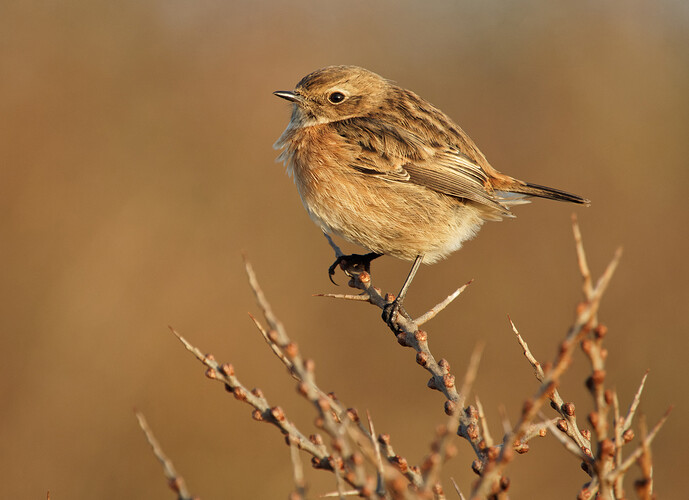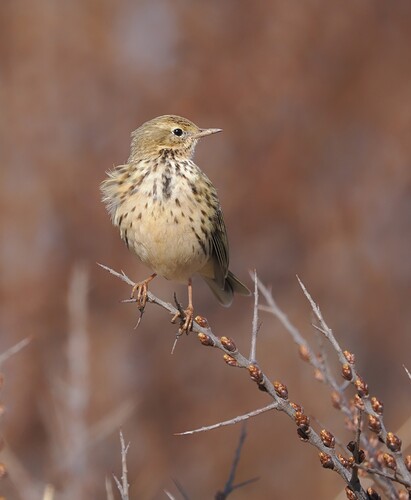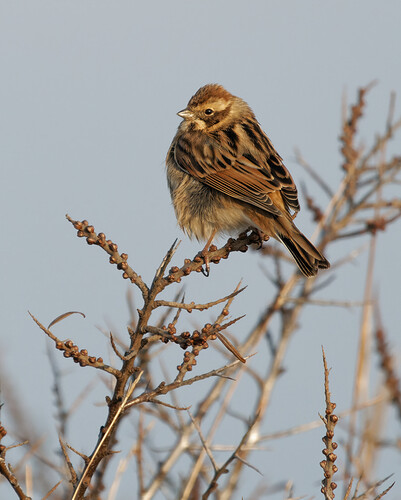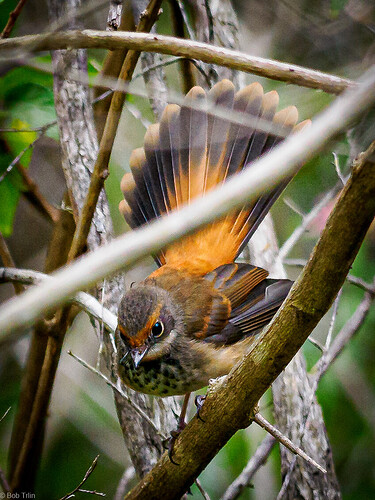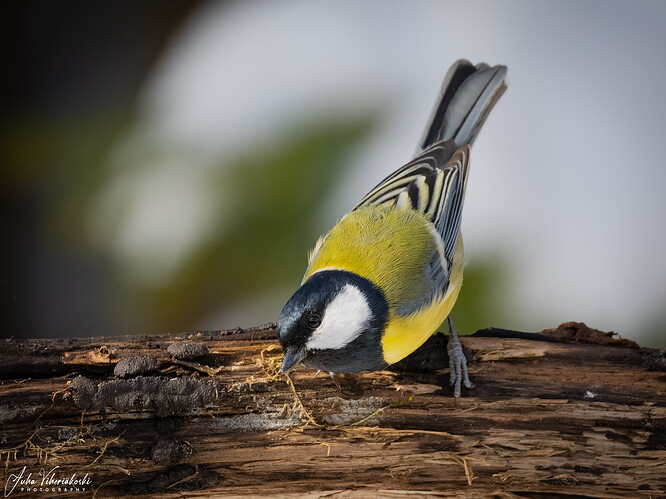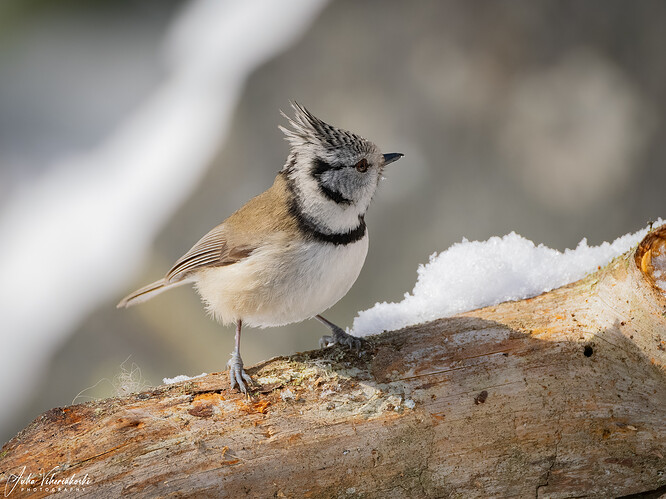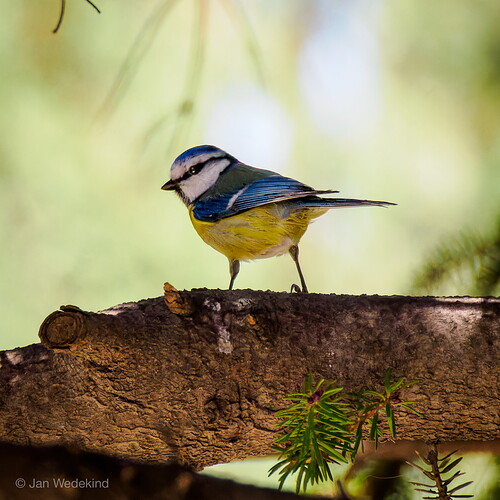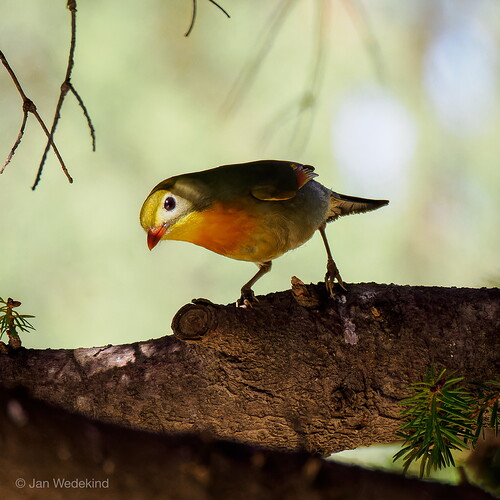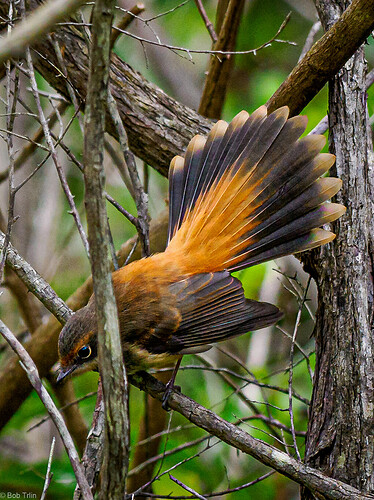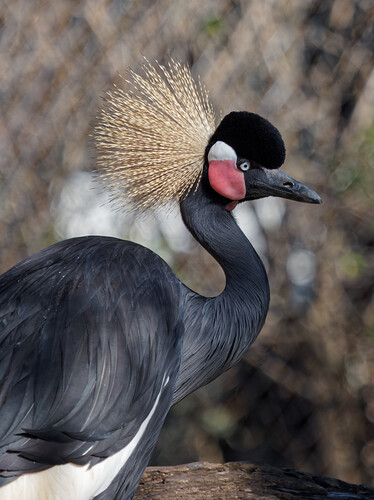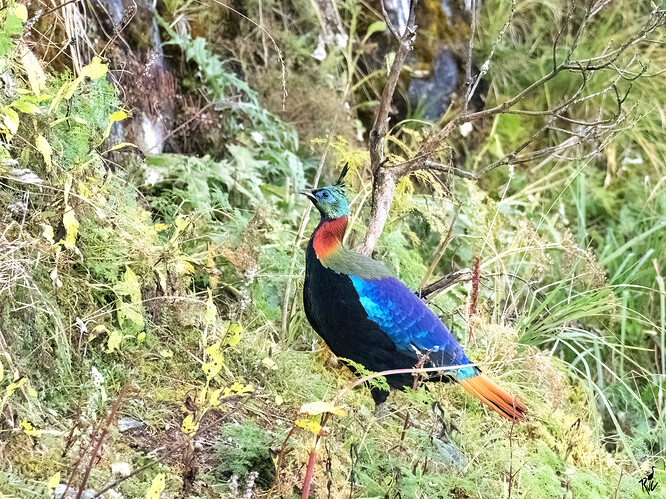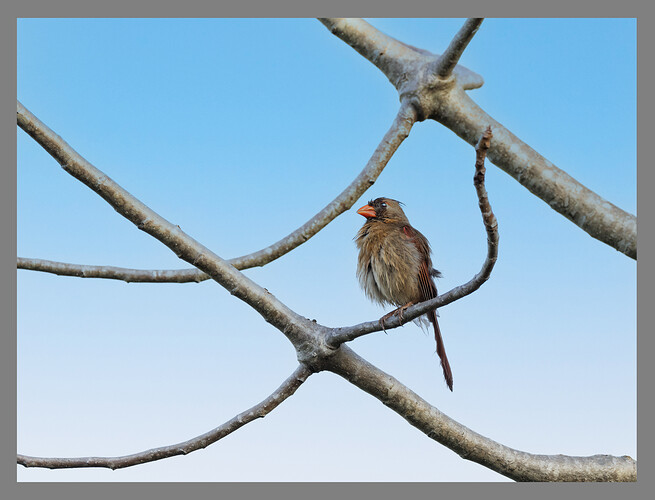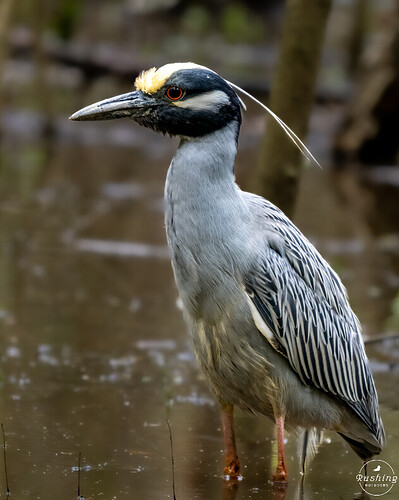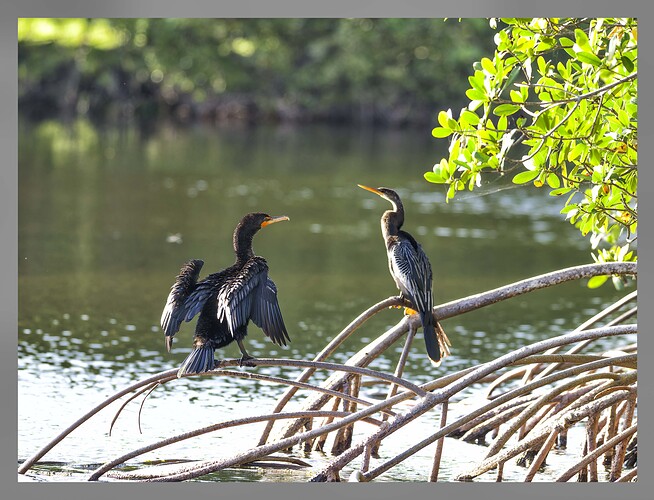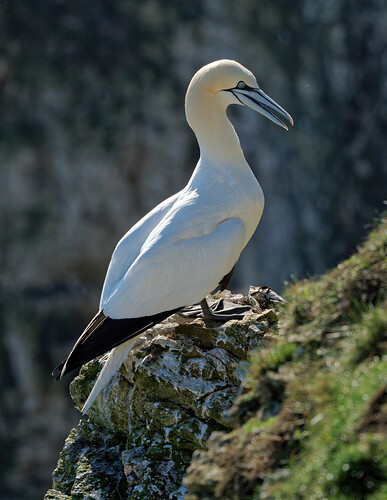Nice one. love ducks, especialy in flight. for such a fat ungainly bird it sure flies fast. Like arrows. Always amazes me!
Here is mine.
Your duck walks on water!!!
No ducks walking on water, but some nice ripples and colors reflected as one swims by. I recently got a 100-400mm Olympus lens and have been enjoying it. Shot at 400mm handheld.
Some from Friday at Elmley in N Kent (UK) with OM-1 and the 150-400 in a gale!
Penduline Tit hanging on in the bulrushes and a Marsh Harrier some distance away staking out its territory in the reeds. All at max range (560mm) cropped and treated in Topaz DeNoise. (I don’t like what Topaz Photo does to feathers … but that’s another story)
Love the processing. great pose and glow.
Great Images !
Love them all, especially the Harrier - I can feel and hear the wind rushing !
Thx Yuri
A few pics from my birding patch on the Humber Estuary, Lincolnshire, England. All taken with Oly/OM kit -
EM1X & OM1 with 300 prime or 150-400 and sometimes MC-14 added.
Teal, Purple Sandpiper, Reed Bunting, Meadow Pipit, Stonechat.
Here’s mine. A Rufous Fantail (Rhipidura rufifrons). It was bad light, in the scrub and about to rain, however it paid off.
Wow, incredibly crisp. Well done!
Sorry, messing up with the new forum.
Anywho, here are a blue tit and a “sunbird” (their name in German), from the garden:
This is the second image of the same bird above, a Rufous Fantail (Rhipidura rufifrons). I wanted to post it before but was allowed only one image on my first post. That’s fair enough.
This was cropped into a vertical profile as there was too much empty space on the right.
EM1.3, Oly 100-400mm at 400mm. Black Crowned Crane
Here is one from me .
Its Himalyan Monal, has 11 colours, a bg bird about the size of a turkey and shy. Found in higher elevations in the himalayas.
i
Seems to have focused well despite the branches.
Mike
That’s what I love about bird detect. It puts the bird clearly in the context of its natural environment with just enough DOF while still blurring the distant background. This bird is never far from dense scrub.
Yellow-crowned Night-Heron deep in her\his preferred wetland habitat.
It’s nice that the OM-1 & 150-400 TC1.25 are just as comfortable in this habitat.
How do you tell the difference between a cormorant and an anhinga? The cormorant is in focus, the anhinga isn’t. Otherwise, the easiest way is that the cormorant’s beak is curved at the end, the anhinga’s is straight. Mnemonic: C is for cormorant/curved.
